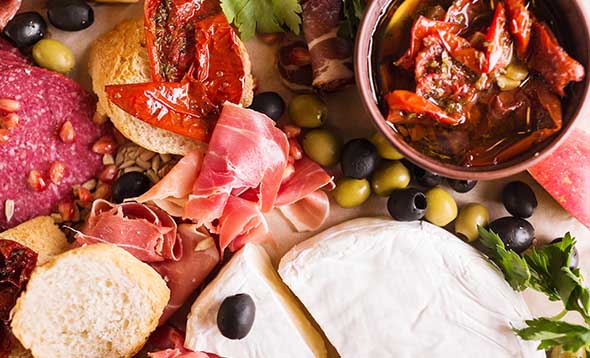That organic living is a conscious health choice
Foods That May Worsen My Allergy and Asthma Symptoms
Cough. Sniffle. Sneeze. Wheeze. Repeat.
For individuals with asthma or seasonal allergies, this sequence can feel like a well-choreographed routine. Inflammatory respiratory conditions are often exacerbated by factors such as mould, pollen or poor air quality.
With greater attention paid to what’s inhaled, sufferers often overlook what’s eaten. Turns out, certain foods may trigger or worsen asthma or allergy symptoms. If any of the foods below are in your grocery list, try swapping them out to keep the sniffles at bay.
Deli-style Meats
Before you bite into that bacon, ham or smoked chicken, think twice – or at least check the label. You’re likely to be getting more than just meat. Synthetic sodium nitrites and nitrates are often added to keep cured meats fresh, flavourful and appetising. These compounds can inflame the nasal passages and aggravate asthma.
Milk and Cheese
Consider going dairy free, even if you aren’t allergic or intolerant to dairy. While consuming milk, cheese, cream and yogurt shouldn’t pose a risk for asthma sufferers, dairy can temporarily thicken mucus secretions. If you’re suffering from seasonal allergies, substituting milk products for plant-based alternatives might afford some short-term relief from sinus congestion.
Brightly Coloured Sweets
While rainbow-coloured sprinkles, frosted cakes and candies appeal to your sweet tooth, these may pose a problem for allergy sufferers. Try to avoid sweet treats with vibrant shades that are the result of synthetic dyes – especially carmines and tartazine – rather than natural pigments from fruits or vegetables. These manmade compounds have been known to trigger allergic reactions and aggravate asthma. To play safe, make your own homemade treats with naturally colourful ingredients or purchase those that are free from artificial dyes.
Savoury Processed Snacks
While pleasing to the palate, monosodium glutamate, commonly known as MSG, can bring on a variety of symptoms – ranging from headaches and nausea, to rashes and sweating - for sensitive systems. While not as worrisome for seasonal allergies, many medical associations warn against MSG consumption, as it’s believed to be a possible asthma attack trigger. Screen ingredient lists for MSG, which is sometimes labelled as glutamic acid, natrium glutamate and glutamate, or listed by its numerical codes, E620 to E625. Use natural salts – pink Himalayan or Celtic sea salts – and other organic fresh herbs and dried spices to boost flavour instead.
Preserved Fruits
To maintain freshness and prevent spoilage, many manufacturers use tightly sealed packaging or go a step further by adding sulphite derivatives to extend their products’ lifespan on the shelves. Often found in dried fruits, these preservatives can trigger a range of allergic reactions – from runny, inflamed nose to lung inflammation and wheezing – in those with allergies and asthma. While most common in preserved fruits, keep a lookout for sulphites in bottled fruit juices, condiments, fruit fillings, jams as well as jellies.
Whatever your health goal, Eve is here to help. She is available for private nutrition consultations, bespoke corporate talks or The Kitchen Edit, where she reviews your pantry to help you lead a healthy, nutritionally-balanced life. If you have any enquiries or would like to sign up for a consultation, please contact COMO Shambhala Urban Escape Singapore at +65 6304 3552 or [email protected].


























_1672804154.jpg)

_1611290459.jpg)